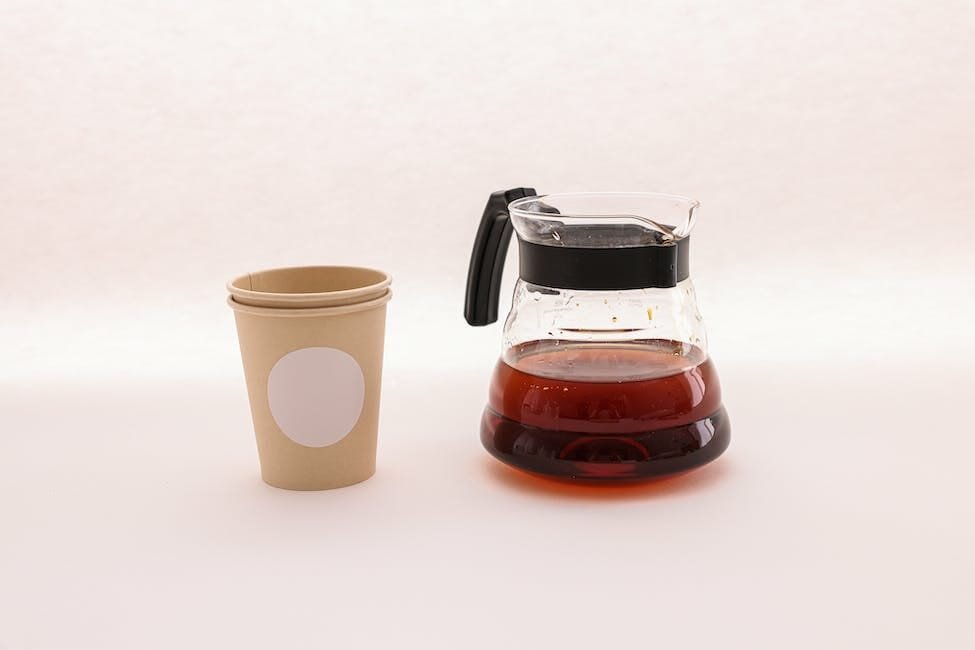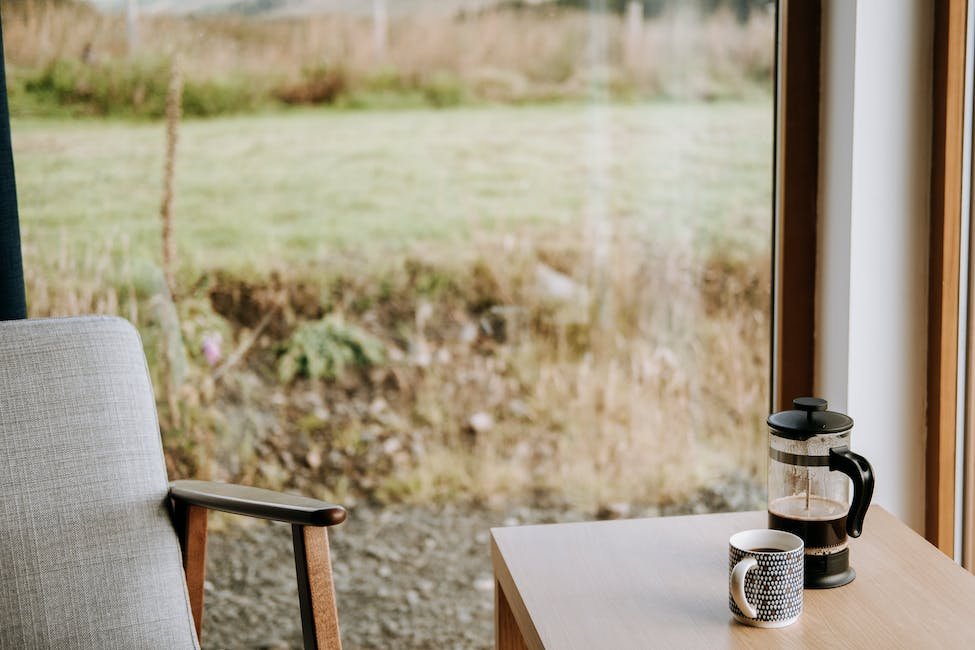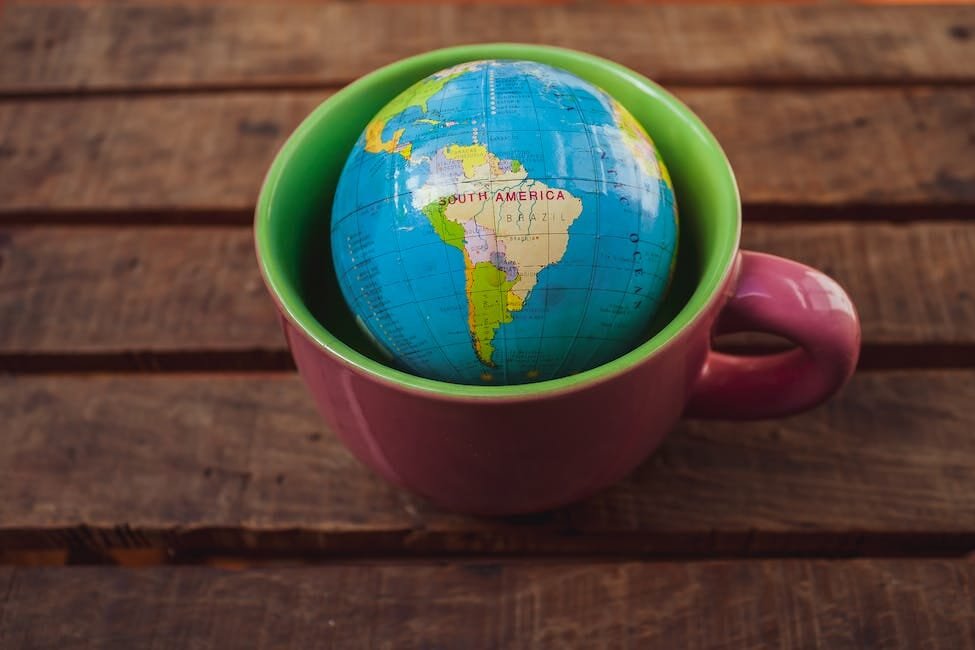Here are some tips for drinking coffee with an empty stomach
 When having coffee after an overnight fasting, make sure you have it at least one hour before eating anything else.
If your craving more food afterwards, then try to drink less of the beverage until your hunger subsides.
You can also choose to have weaker beverages like water or unsweetened tea instead of regular size drinks to reduce the appetite.
Some people find that glucose, which is a simple carbohydrate found in sugar, helps balance their hormones so they do not feel hungry as quickly.
When having coffee after an overnight fasting, make sure you have it at least one hour before eating anything else.
If your craving more food afterwards, then try to drink less of the beverage until your hunger subsides.
You can also choose to have weaker beverages like water or unsweetened tea instead of regular size drinks to reduce the appetite.
Some people find that glucose, which is a simple carbohydrate found in sugar, helps balance their hormones so they do not feel hungry as quickly.
Coffee and stomach
Many people enjoy drinking coffee, but not everyone enjoys how their gut feels after. Some people feel nervous or uncomfortable after they drink their morning cup of Joe, with symptoms such as bloating, cramping, nausea, and diarrhea. These are all signs that your body is trying to process the caffeine in the coffee. The amount of caffeine in one serving of brewed coffee can be well over 100 mg! That’s why it’s important to make sure you have eaten before you brew your own pot- so that you’re giving yourself enough time to digest the food before adding more caffeine. But what if someone doesn’t like coffee because of their stomach? Is there anything we can do about that? Fortunately, yes! There are several ways to consume just plain old water instead of coffee when you want a quick fix. Here are some tips for doing this. Read on for these tricks.Why is it important to eat before drinking coffee?
 When you drink your morning coffee without eating first, there are some issues that can arise. One of these is called acidosis.
Acidosis occurs when you consume too many acids (or substances with pH less than 7) in relation to your body’s alkaline reserves.
Most people have enough basic or alkali minerals in their bodies to handle small amounts of acidic beverages, but if you’re someone who drinks a lot of coffee — especially caffeine-rich espresso or strong brewed coffee — then acidosis can become an issue.
Too much acid consumed at one time can deplete our body’s natural buffers, which help regulate blood pH. As we know, blood is mostly water, so when its pH gets out of balance, all sorts of bad things happen to our bodies.
We could get sick by lack of proper immune response, symptoms like nausea, vomiting, diarrhea, stomach ache, fatigue, chest pain, and more. Our hearts and kidneys may also be affected.
This isn’t very fun! So why do it?
It’s easy to forget how quickly a beverage can fill us up. Even though most people say they’re hungry after a meal, hunger doesn’t usually hit until later. That’s not the case when you drink liquids.
You’ll probably feel full faster if you eat something before your coffee because you’ll sense that internal cue from your stomach telling you that it’s time to stop.
When you drink your morning coffee without eating first, there are some issues that can arise. One of these is called acidosis.
Acidosis occurs when you consume too many acids (or substances with pH less than 7) in relation to your body’s alkaline reserves.
Most people have enough basic or alkali minerals in their bodies to handle small amounts of acidic beverages, but if you’re someone who drinks a lot of coffee — especially caffeine-rich espresso or strong brewed coffee — then acidosis can become an issue.
Too much acid consumed at one time can deplete our body’s natural buffers, which help regulate blood pH. As we know, blood is mostly water, so when its pH gets out of balance, all sorts of bad things happen to our bodies.
We could get sick by lack of proper immune response, symptoms like nausea, vomiting, diarrhea, stomach ache, fatigue, chest pain, and more. Our hearts and kidneys may also be affected.
This isn’t very fun! So why do it?
It’s easy to forget how quickly a beverage can fill us up. Even though most people say they’re hungry after a meal, hunger doesn’t usually hit until later. That’s not the case when you drink liquids.
You’ll probably feel full faster if you eat something before your coffee because you’ll sense that internal cue from your stomach telling you that it’s time to stop.
Tips for drinking coffee with an empty stomach
 Even if you have just eaten, it is still okay to drink some coffee! In fact, most people start their day by having a cup of black tea or coffee after eating so there is no need to avoid this habit.
If you are hungry at work, bring your lunch from home and pack your own meal, then eat it before coming into the office. Or better yet, take advantage of the free breakfast that many offices offer and make sure to add enough time to prepare yourself for morning classes/meetings.
Some studies show that even one night of sleep deprivation can increase overall body glucose levels, making it harder to control blood sugar. Consuming more carbohydrates during the next day will also help regulate blood sugars.
However, do not overdo it as this could cause hyperglycemia (too high a blood glucose level). This could be fatal for someone who has type 1 diabetes because they would not get adequate insulin to lower their glucose levels.
Even if you have just eaten, it is still okay to drink some coffee! In fact, most people start their day by having a cup of black tea or coffee after eating so there is no need to avoid this habit.
If you are hungry at work, bring your lunch from home and pack your own meal, then eat it before coming into the office. Or better yet, take advantage of the free breakfast that many offices offer and make sure to add enough time to prepare yourself for morning classes/meetings.
Some studies show that even one night of sleep deprivation can increase overall body glucose levels, making it harder to control blood sugar. Consuming more carbohydrates during the next day will also help regulate blood sugars.
However, do not overdo it as this could cause hyperglycemia (too high a blood glucose level). This could be fatal for someone who has type 1 diabetes because they would not get adequate insulin to lower their glucose levels.
Coffee and belly fat
 Recent studies show that drinking many cups of coffee can be harmful to your waistline. Although earlier research may have suggested that having caffeine could reduce weight, more recent studies suggest just the opposite-the average American drink far too much sugar!
In fact, a study conducted by Pennington Health found that people who drank at least eight cups of regular brewed coffee every day had twice as much body mass index (BMI) – an indicator of obesity determined by height and weight–as those who did not drink any.
The researchers hypothesize that caffeine may promote food intake by acting like glucose — another name for plain old sugar. If you’re already prediabetic or diabetic, this may pose additional health risks for you.
If you need a morning pick me up, try either making it yourself or buying a good quality pre-made drip roast with no additives.
Recent studies show that drinking many cups of coffee can be harmful to your waistline. Although earlier research may have suggested that having caffeine could reduce weight, more recent studies suggest just the opposite-the average American drink far too much sugar!
In fact, a study conducted by Pennington Health found that people who drank at least eight cups of regular brewed coffee every day had twice as much body mass index (BMI) – an indicator of obesity determined by height and weight–as those who did not drink any.
The researchers hypothesize that caffeine may promote food intake by acting like glucose — another name for plain old sugar. If you’re already prediabetic or diabetic, this may pose additional health risks for you.
If you need a morning pick me up, try either making it yourself or buying a good quality pre-made drip roast with no additives.
What Happens If You Drink Coffee Mixed With Wine on an Empty Stomach?
Drinking coffee mixed with wine on an empty stomach can lead to several uncomfortable symptoms. The combination of caffeine and alcohol may cause increased heart rate, dizziness, and even nausea. It’s best to avoid this concoction, as it can disrupt your body’s natural balance and potentially lead to an unpleasant experience.
Are there any negative effects of drinking coffee with an empty stomach?
 There are some theories about why having caffeine after eating is not ideal, but most have no solid proof to back them up. Some say it can contribute to glucose levels rising for two main reasons– either because your body cannot process the food properly due to digestion being hampered or because you eat more due to hunger pangs caused by the drink.
By the time you actually start drinking the coffee, however, your blood is already rich in glucose so it does not make much difference. Also, even if this theory was true, people do it all the time and we know how well it works!
If you’re really worried that drinking coffee after eating will hurt you, then simply wait at least an hour before consuming anything else. The word ‘acidic’ refers to foods and drinks which increase acidity in your blood, and drinking too quickly can be harmful for your overall health.
There are some theories about why having caffeine after eating is not ideal, but most have no solid proof to back them up. Some say it can contribute to glucose levels rising for two main reasons– either because your body cannot process the food properly due to digestion being hampered or because you eat more due to hunger pangs caused by the drink.
By the time you actually start drinking the coffee, however, your blood is already rich in glucose so it does not make much difference. Also, even if this theory was true, people do it all the time and we know how well it works!
If you’re really worried that drinking coffee after eating will hurt you, then simply wait at least an hour before consuming anything else. The word ‘acidic’ refers to foods and drinks which increase acidity in your blood, and drinking too quickly can be harmful for your overall health.
Does it matter what kind of coffee I drink?
 Although some people believe that only milk can be consumed with their coffee, this is not true! You can add any type of beverage to your cup. Almost every place will let you choose whether you want cream in yours or not.
Most people begin drinking caffeinated beverages after breakfast, so having an empty stomach may cause problems when trying to enjoy caffeine drinks later in the day. Because digestion takes time, your body does not fully break down all the nutrients in food for hours afterwards. This could result in symptoms such as nausea, heartburn, acid reflux, abdominal pain, diarrhea, or even vomiting.
Some people find they are able to eat or drink right before bedtime because their bodies have spent most of the day cleansing and resting, but others experience more severe side effects until morning.
Although some people believe that only milk can be consumed with their coffee, this is not true! You can add any type of beverage to your cup. Almost every place will let you choose whether you want cream in yours or not.
Most people begin drinking caffeinated beverages after breakfast, so having an empty stomach may cause problems when trying to enjoy caffeine drinks later in the day. Because digestion takes time, your body does not fully break down all the nutrients in food for hours afterwards. This could result in symptoms such as nausea, heartburn, acid reflux, abdominal pain, diarrhea, or even vomiting.
Some people find they are able to eat or drink right before bedtime because their bodies have spent most of the day cleansing and resting, but others experience more severe side effects until morning.
Helpful tips for drinking instant coffee
 Many people start their day with an espresso or cappuccino, but you can also enjoy brewed coffee without eating anything first!
Most people begin drinking coffee after breakfast, so it is usually consumed with a meal. But you can choose to drink your coffee before or after your meals, just make sure you like them more hungry than full!
If you are not used to having coffee alone, then try one of our helpful tips for drinking instant coffee.
Many people start their day with an espresso or cappuccino, but you can also enjoy brewed coffee without eating anything first!
Most people begin drinking coffee after breakfast, so it is usually consumed with a meal. But you can choose to drink your coffee before or after your meals, just make sure you like them more hungry than full!
If you are not used to having coffee alone, then try one of our helpful tips for drinking instant coffee.